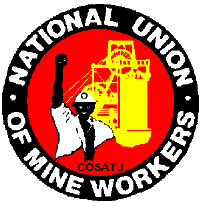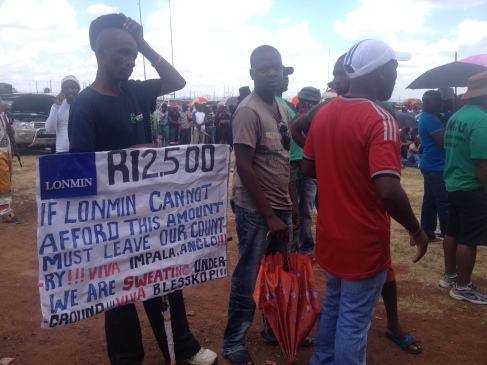
On the 5th of June 2015, 700 delegates at the National Union of Mineworkers 15th national congress voted for new leaders. Free State secretary David Sipunzi was elected general secretary, replacing Frans Baleni, who served in the position for 9 years.
He was elected by the skin of his teeth: Frans Baleni 345 votes – David Sipunzi 354 votes.
The congress was the first since the Marikana massacre and mass loss of N.U.M membership to AMCU. It also took place after the expulsion of metalworkers union NUMSA from COSATU and the dismissal of the federation’s general secretary Zwelinzima Vavi. Baleni is accused of playing a leading role in orchestrating these two events.
There are a few moments during the conference and afterwards that are worth quoting:

“Leaders must lead with humility, and serve members even if you have to go down on your knees to serve members. Members were attracted to NUM because it was on the cutting edge of serving members – Cyril Ramaophosa [iol.co.za]

Once you have a federation dominated by the public sector you are in trouble. We should have industrial unions building themselves, as well as putting on our shoulders to help this union the NUM to be strong enough to deal with Amcu. – Gwede Mantashe [news24]

I decided to campaign for another term after I was approached by nine (9) regions which nominated me for the position. I accept the democratic decision arrived at by the membership of the N.U.M – Frans Baleni [radio702]

The expulsion of NUMSA is not a contribution towards worker unity, that’s my belief. The expulsion of [Zwelinzima} Vavi is not going down well with the general membership at the ground level. I’m tired of being shouted by members asking when is Vavi coming back. I can no longer close my ears to those calls – David Sipunzi [ewn.co.za]
Will the election of David Sipunzi and William Mabapa [deputy GS] change the N.U.M’s position towards the other industrial unions within COSATU? Will the proletariat reclaim SA’s biggest worker federation?

